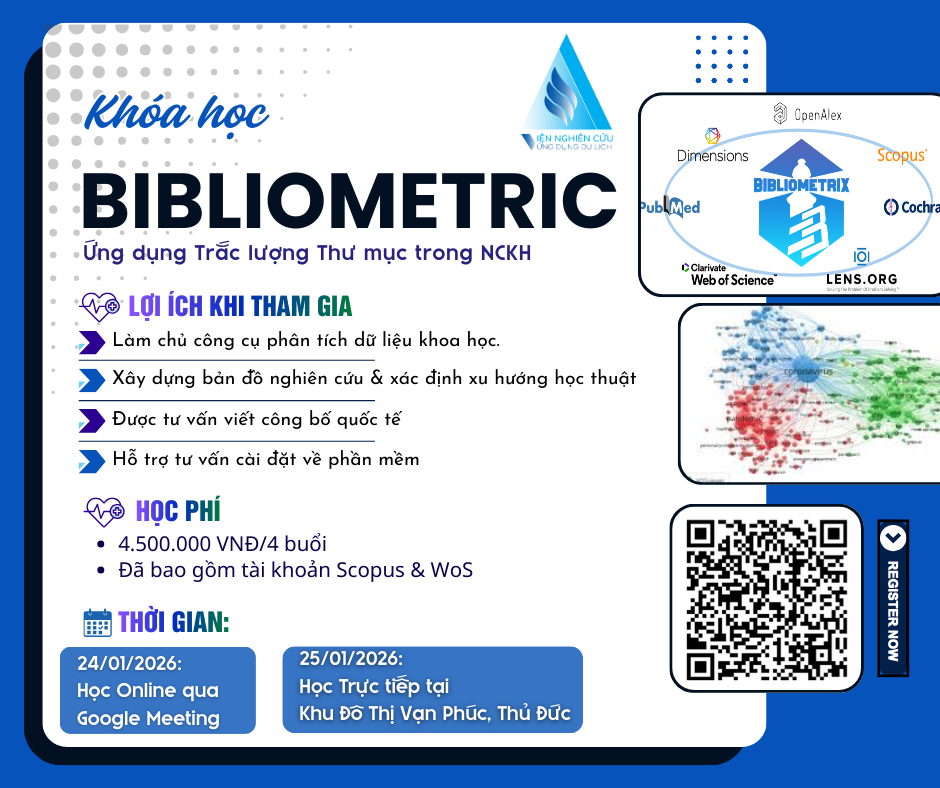This post is also available in:
Tiếng Việt (Vietnamese)
The year 2020 presented unprecedented challenges to the global tourism and events industry, particularly affecting cultural festivals. This article synthesizes information from a special interest group meeting of ATLAS (The Association for Tourism and Leisure Education and Research), which focused on the City of Edinburgh, UK. Edinburgh, renowned as the “Festival City,” experienced a year without physical festivals in 2020, compelling organizers to rapidly adapt to online and hybrid models.
This analysis explores the financial, operational, and social challenges faced by major festivals such as the Edinburgh International Book Festival and the Edinburgh Festival Fringe, alongside the innovative solutions that were implemented. The article also discusses the lessons learned, the shifts in perception regarding the value of culture and the arts, and the strategic directions for building a more sustainable festival future that balances local and global, as well as physical and digital elements.
Introduction
The joint meeting of the ATLAS special interest groups (the Events Group and the Cultural Tourism Group) centered its discussion on the role of cultural festivals in cities, with a special focus on Edinburgh, famously known as a “Festival City.” ATLAS is a global network dedicated to tourism and leisure research and education, comprising a community of approximately 1,400 researchers and educators. The Cultural Tourism Group is ATLAS’s longest-standing research group, established almost concurrently with ATLAS in 1991, while the Events Group is much younger, having been formed in 2011.
In 2020, the COVID-19 pandemic led to a “festival-less” summer in Edinburgh for the first time in the nearly 75-year history of its festivals. This event forced festival organizers to rethink their relationship with the city and its residents, as well as the societal role of the festivals themselves. The discussion was captured in a recorded meeting, which serves as the basis for this analysis.
Edinburgh: A Global Festival City
Edinburgh is a world-leading festival city, where creative communities and audiences regard festivals as a vital expression of identity. Established in the post-World War II era as part of a reconstruction effort, Edinburgh’s festivals, according to 2018 data, attracted 4.7 million attendees, representing approximately 1.1 million unique individuals—an attendance figure larger than that of a FIFA World Cup.
Surprisingly, 60% of the audience is Scottish, with nearly 40% from Edinburgh itself, while the remaining 40% comes from across the United Kingdom and the world. The festivals are a significant contributor to the city’s social, cultural, and economic fabric. The Fringe alone is estimated to contribute around £200 million to the Scottish economy annually.
The Challenges of 2020
The year 2020 brought a series of unprecedented challenges for the Edinburgh festivals:
- Cancellation and Financial Loss: On April 1, 2020, all summer festivals had to make the decision to cancel. The Edinburgh International Book Festival immediately lost £1 million in ticket revenue and over £1 million from book sales and its café. The Fringe estimated that venues and artists would lose between £20 and £30 million in a single year.
- Operational Issues: Many organizations had to operate with reduced staff (for example, 70% of the Fringe’s core staff were furloughed) and work remotely, complicating the organization of digital festivals.
- Social Distancing: Social distancing regulations made it difficult to host physical events, particularly for the crowded venues and bustling atmosphere characteristic of the Fringe.
- Digital Competition: With numerous festivals moving online, the competition for audience attention intensified significantly.
- Pre-Pandemic Concerns: Even before COVID-19, Edinburgh’s festivals faced debates concerning over-tourism, commercialization, the alienation of local resident communities, and the negative environmental impact on the city’s festival gardens.
Adaptation and Innovation: Online and Hybrid Models
Edinburgh International Book Festival
Facing these challenges, the Edinburgh International Book Festival implemented significant changes:
- Online Transition: Organizers decided to cancel the physical festival and pivot to a large-scale online festival.
- Financial and Partner Support: With support from sponsors and individual donors (totaling £2 million), the festival was able to pay its staff, prepare for future festivals, and host a free online event.
- Core Principles: The festival focused on “intelligent public discourse” and creating a “community of thought” within the online environment.
- Event Format: It organized 150 events (50 for young people, 100 for adults), all accessible for free across multiple platforms with a catch-up function.
- Digital Infrastructure: Two television studios were built in the Assembly Rooms, a vacant Fringe venue, complete with green screens and sign language interpretation systems. These studios were deep cleaned and sanitized between uses.
- Diverse Interaction: The online platform included chat rooms, moderated Q&A functions, live captioning, and a virtual book-signing feature where viewers could meet authors via Zoom and receive signed books.
- Impressive Results: The festival proudly achieved 200,000 views during its run, with an average viewing time of 43 minutes. Notably, 50% of the audience was from outside the UK, compared to 5% in previous years, with viewers from nearly every country in the world.
- Future Vision: This experience created a solid foundation for organizing hybrid festivals in the future, combining live events with digital elements.
Edinburgh Festival Fringe
The Fringe, with its uncurated nature and vast number of artists and venues, faced unique challenges:
- Advocacy and Financial Support: The Fringe Society worked closely with the UK and Scottish governments to secure financial support. They successfully obtained a £1 million loan from the Scottish Government to refund registration fees to artists (over £600,000) and saw major cultural support packages announced.
- Crowdfunding Platform: A partnership with Crowdfunder was established to help artists and venues raise their own funds. Over 100 artists and venues participated, raising more than £360,000 through small donations.
- Fringe Marketplace: A new digital platform was created, described as a “Netflix for the Fringe,” connecting 100 tour-ready shows with buyers from 31 different countries.
- Online Artist Support: Over 50 online panel discussions, workshops, and Q&A sessions were organized, attracting around 1,300 artists. Partners focused on mental health, artists who are parents, artists of color, and working-class artists.
- Community Events: The “Fringe Days Out” program continued its collaboration with over 30 charities, organizing online artist performances for communities and piloting socially distanced street events.
- Creative Audience Engagement:
“Fringe Miniaturised”: Artists were invited to record clips no longer than one minute, resulting in nearly 400 videos and 300,000 views.
“Fringe on Fridays”: Four weekly live-streamed performances were held, with tickets priced at £9. 100% of ticket proceeds went directly to registered artists and venues. - Future Planning: The Fringe is planning for all scenarios for 2021, including a reduced-scale physical festival, a hybrid model (the most likely scenario), and a digital-only festival. The year 2022 will mark the 75th anniversary of the Fringe and its sister festivals.
Future Implications and Lessons Learned
Strategic Vision and Change
- No Return to the Old Normal: There will be no return to the “status quo ante.” A new “Sustainable Festival City Vision,” agreed upon by the festivals and city stakeholders, is required.
- Re-evaluating Value: The crisis highlighted the value of artists, organizers, and the supply chain. Society needs to recognize cultural value not merely as entertainment but as an essential social need.
- New Business Models: Festival business models must be reinvented based on new value propositions, incorporating local engagement and digital interaction.
- Uncertainty: Long-term uncertainty persists, necessitating shorter planning horizons and a flexible approach.
The Role of Digital
- A Lifeline and a Laboratory: Digital technology served as both a lifeline and a platform for experimentation and innovation.
- Not a Complete Replacement: Digital cannot fully replace the live experience, especially for festivals reliant on interaction and the atmosphere surrounding the events.
- Thách thức của Kỹ thuật số:
◦ Mệt mỏi Kỹ thuật số (Digital Fatigue): Khán giả có thể cảm thấy mệt mỏi với các sự kiện trực tuyến. Vấn đề không chỉ là khả năng tiếp cận công nghệ mà còn là chất lượng của các sự kiện kỹ thuật số.
Monetizing Content: There is a significant challenge in getting audiences to pay for digital content and ensuring that revenue reaches the artists rather than intermediaries.
Relationship with Local Communities and Tourists
- Refocus on Local Audiences: There is a need to refocus energy on local audiences and the domestic creative sector.
- Relationship with Residents: Although the festivals have a large local audience, some communities still feel excluded. Efforts have been made to encourage participation from these communities, such as the Book Festival’s “Stories and Scran” program.
- Dispersing Activity: The city’s green spaces need to be better utilized, and festival activities should be dispersed to suburban areas to reduce concentration and enhance local engagement.
- Sustainable Tourism: The goal is to attract responsible, curious, and loyal tourists who explore Edinburgh more deeply, frequently, and for longer durations.
Collaboration and Government Support
- Enhanced Collaboration: The pandemic fostered closer collaboration among the sister festivals and stakeholders through Festivals Edinburgh.
- The Necessity of Public Support: Edinburgh’s festivals were previously supported by approximately 25% public funding, generating 75% of their own revenue. Government support is “absolutely essential” because culture is a social need and delivers enormous economic value (over £300 million/year for Scotland). There is a growing recognition that culture should be central to economic recovery.
- Relationship with Politicians: Local and national politicians recognize the importance of the festivals, frequently participating in and advocating for them. However, discussions continue regarding the balance between driving economic recovery and enhancing community well-being.
Conclusion
The year 2020 was a year of trial for the Edinburgh festivals, but it was also a “living lab” that demonstrated the sector’s resilience, creativity, and innovation. The festivals learned to use technology to reach global audiences and create unique interactive experiences. However, they also recognized that the live experience remains at their core and needs to be reimagined.
The future of festivals in Edinburgh will be a hybrid model, combining the best elements of the physical and digital worlds, with a greater emphasis on sustainability, local community engagement, and continuous government support to nurture both the intrinsic and economic value of the arts.
The new vision of a Sustainable Festival City promises a new era, where Edinburgh is not only a hub for cultural events but also a model for responsible and inclusive festival development.









